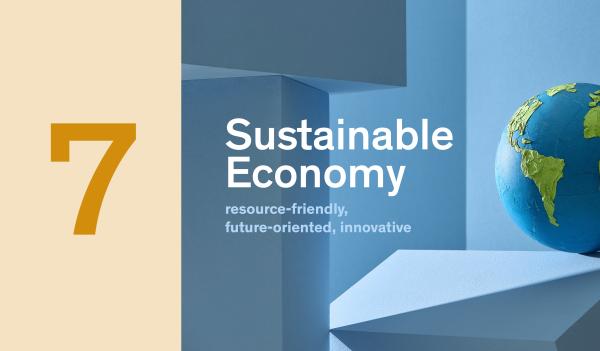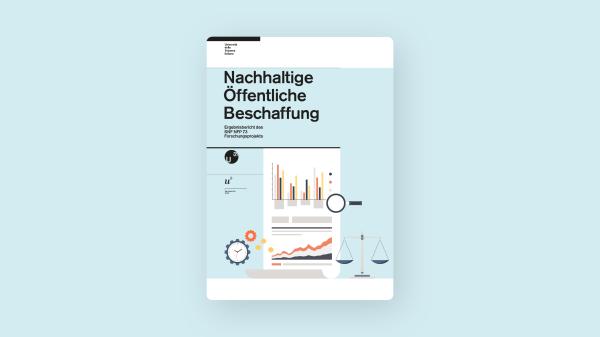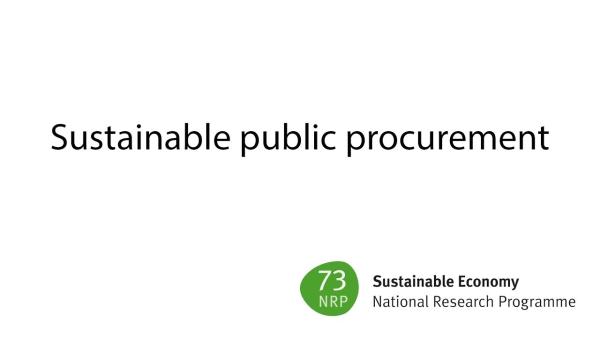Sustainable Public Procurement (SPP)
Developing and Testing Sustainability Indicators for Public Procurement Tenders in Switzerland in line with the WTO Government Procurement Agreement – and their social acceptability and legal feasibility

An interdisciplinary research team from Lugano and Bern analysed existing procurement practices for the status quo of implementing sustainability and derived customised sustainability indicators for SPP within a Swiss context that were benchmarked against feasibility within Swiss legislation.
Background
SPP still lacks a commonly agreed, formalised framework for measuring and comparing sustainability. National legislators are increasingly promoting SPP. The introduced and upcoming revised public procurement legislations mandate the comparison of sustainability in public procurement tender processes as the Swiss case of adopting the WTO’s General Procurement Agreement (GPA) and the Federal Act on Public Procurement (PPA). Furthermore, guidelines such as the recently introduced ISO 20400 lack clear common means for measuring and comparing sustainability. With the research presented in this project, we aimed to contribute to closing this gap.
Aims
Within the interdisciplinary project “Sustainable Public Procurement” (SPP), Team Stürmer (Informatics, Berne) analysed existing procurement tenders regarding existing sustainability implementation. Based on the status quo results, Team Seele (Business Ethics, Lugano) identified the most pertinent and suitable sustainability indicators proposed for playing a more important role in SPP, alsoincorporating the different approaches in Europe (fixed and less adaptive) and the peculiarities in Switzerland (adoptable with an emphasis on individual responsibility, here the procurer). Finally, Team DeRossa (Legal Studies, Lugano) tested the theoretically derived indicators regarding their feasibility within existing Swiss legislation and subsequent potential for improvement.
Results
Bern:
Team Stürmer empirically analysed procurement data from the Swiss public sector agencies. By developing a sector-specific method for identifying sustainability criteria in procurement documents, the team was able to measure sustainability performance in Swiss tender datasets. In particular, they focused on selection criteria, technical specifications and award criteria in tendering files of ICT, construction, road transport, food and catering and textile procurement. The results indicate that sustainability criteria are not yet common in public tenders but have grown in recent years.
Lugano Ethics:
Team Seele identified existing sustainability indicators from various fields and their suitability for sustainable public procurement, incorporating case studies from Team Stürmer’s big data analysis. This led to peer-review journal publications on a typological analysis of sustainability indicators in general (Knebel and Seele 2020) and more specifically in the case of Switzerland (Knebel and Seele 2021), among other publications.
Lugano Legal:
Sustainability indicators identified by Team Seele represent an important tool for increasing sustainability in procurement practices since they propose new criteria already tested in corporate reporting, which are therefore already well known in private companies. The legal part of the research has detected the scope that public procurers potentially have for integrating these indicators into the legally permissible sustainability criteria, while also highlighting the potential critical issues that could arise from it.
Implications for research
Bern:
Methodological contributions were made by defining sector-specific indicators on how to measure sustainability in procurement criteria. In addition, the collected tender data presents an opportunity to continue researching in sustainable public procurement.
Lugano Ethics:
The project is also the first to introduce SPP as a communication process into the academic field of communication management(Knebel and Seele 2020). Furthermore, the specific approach to appreciating the role of the individual procurer over the administrative process of ticking-boxes exercises with regard to the Swiss context is novel and added to the knowledge of SPP (Knebel and Seele 2021).
Lugano Legal:
From a legal point of view, two dogmatic issues remain unexplored and will have to be addressed in the future in order to improvesustainability in public procurement: the extent/scope of the requirement for a link between the sustainability criteria and the subjectmatter of the contract, and the need for compulsory sustainability criteria in legislation.
Implications for practice
Bern:
The collected procurement data and tender documents are made publicly available through a separately funded online platform called IntelliProcure that allows practitioners to search for and reuse procurement information.
Lugano Ethics:
The set of ten thematic indicator clusters offers additional guidance to procurers on how to be flexible in adapting to various, context- andindustry-specific sustainability challenges, as no one-size-fits-all solution exists.
The thematic indicator clusters are: human rights, supply chain control, environmental and social risks, gender pay gap, sustainabilitymanagement certification, measures to combat corruption, greenhouse gas emissions, energy consumption, investments insustainability, and stakeholder description.
Lugano Legal:
The legal analysis provides public procurers and legislators with a set of legal guidelines designed to effectively encourage a paradigm shift toward sustainability in public procurement.
Publications
Project leaders
Prof. Dr. Dr. Peter Seele
Ethics and Communication Law Center
Università della Svizzera Italiana
Prof. Dr. Matthias Stürmer
Institut für Wirtschaftsinformatik
Universität Bern
Prof. Dr. Federica De Rossa Gisimundo
Istituto di diritto
Università della Svizzera Italiana
Project partners
Prof. Dr. Irina Lock
Amsterdam School of Communication Research
University of Amsterdam



